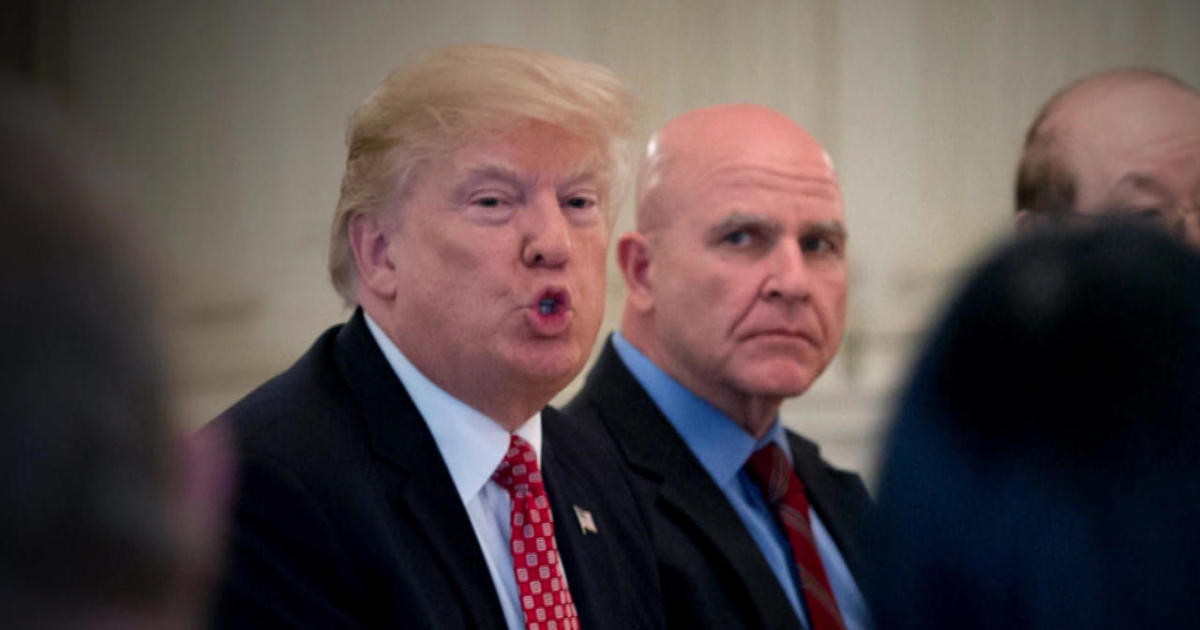Lt. Gen. H.R. McMaster, a seasoned soldier with three decades of service, found himself thrust into the role of national security adviser to President Donald Trump just one month into the administration. Despite warnings from many to not take the position, McMaster accepted the challenge, stating that he was not going to compromise his integrity by telling the president what he wanted to hear to keep his job.
Thirteen months later, Trump abruptly fired McMaster, leading him to reflect on his time in the White House in a new book titled “At War With Ourselves: My Tour of Duty in the Trump White House.” In the book, McMaster, now a CBS News contributor, reveals the inner workings of a White House where everything was more challenging than necessary.
Describing his first real business meeting with Trump, McMaster recalled a presidential daily brief that he felt was ineffective for the president. He noted that Trump enjoyed playing to an audience, which led to an environment of competitive sycophancy where flattery was often sought after.
Despite the challenges, McMaster was eager to serve and viewed Trump’s disruptive nature as an opportunity to reverse what he perceived as weaknesses in President Obama’s foreign policy. However, tensions rose during Trump’s first NATO Summit when he made last-minute changes to his speech, threatening not to defend countries that did not pay their dues.
In a moment of crisis, McMaster, along with Secretary of State Tillerson and Secretary of Defense Mattis, intervened to dissuade Trump from making inflammatory remarks. This incident highlighted the discord between Trump and his advisers, with McMaster acknowledging that Tillerson and Mattis viewed the president as a danger to U.S. interests.
McMaster also expressed unease over Trump’s admiration for authoritarian leaders, particularly Russian President Vladimir Putin. He warned Trump of Putin’s manipulative tactics but noted that the president could be reflexively contrarian when given advice by his advisers.
One notable incident involved Trump’s off-the-cuff remarks about military options for Venezuela, contradicting the advice of his advisers. The tension within the administration led to high turnover, with officials like Tillerson ultimately being fired or resigning due to the challenging environment.
The final straw for McMaster came after a phone call with Turkey’s President Erdoğan, where Trump disregarded preparation and displayed a lack of willingness to listen to advice. McMaster decided to quit, but Trump beat him to it by firing him first, emphasizing the importance of only writing positive things about him in the future.
Following his departure, McMaster retreated to the Hoover Institution at Stanford University, where he continued to write and teach. Reflecting on the events of January 6th and Trump’s actions, McMaster criticized the former president for encouraging an attack on the Capitol and undermining the peaceful transition of power.
When asked about Trump’s fitness for office, McMaster deferred to the judgment of the American people but expressed concerns about what a second Trump administration might entail. He emphasized the importance of learning from past experiences and recognizing the potential challenges that could arise in the future.
In conclusion, McMaster’s account provides valuable insights into the inner workings of the Trump administration and the challenges faced by those working within it. His experiences shed light on the complexities of leadership and decision-making in a high-pressure environment, serving as a cautionary tale for future administrations.









